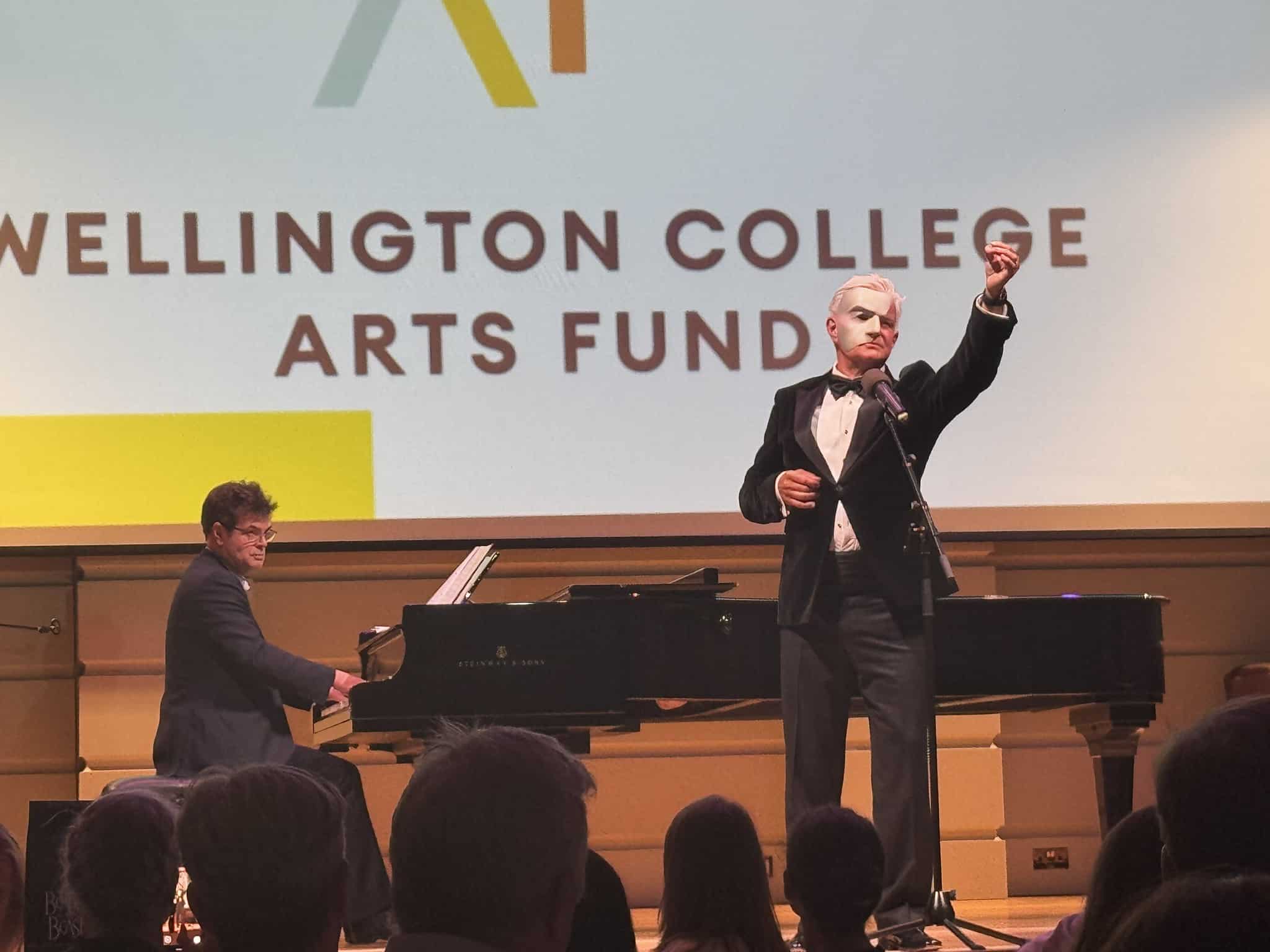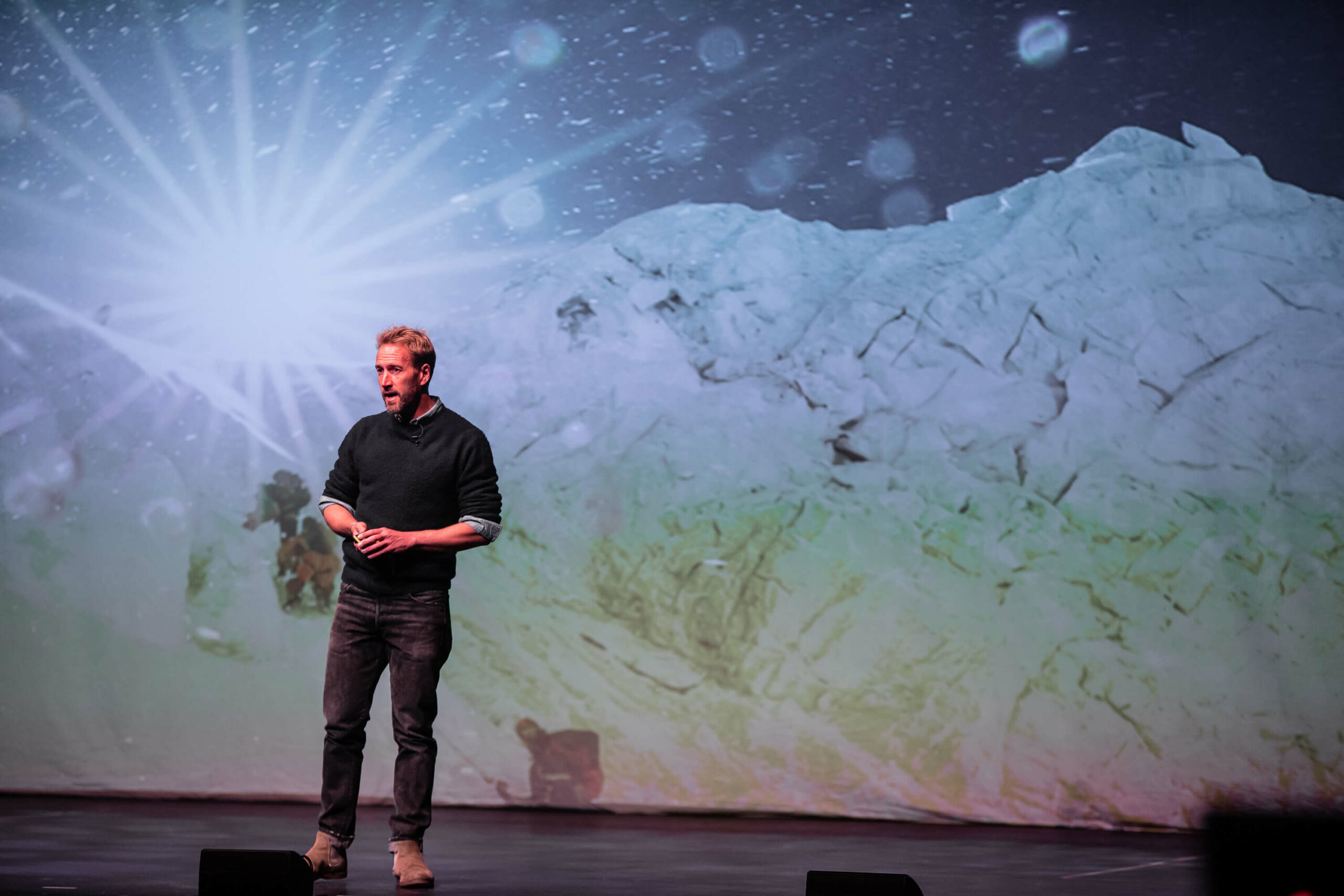
On Wednesday 30th January, we welcomed Ben Fogle, adventurer, explorer and brilliant story-teller, to the G.W. Annenberg. Upper Sixth students, Hugh Ragg (M) and Joe Fennell (Bd) share their thoughts on, what was, a memorable evening.
Today, quite a few people have reached the summit of Mount Everest. However, a comparatively small number of people have rowed across an entire ocean. Fewer still have trekked 1000km across the barren desert, and a mere handful can claim to have scuba-dived with 20-foot-long crocodiles. Ben Fogle is a man who has taken the adventurous lifestyle to the next level, ticking off all of these feats and many more. On Wednesday, the G. W. Annenberg was full to capacity as Fogle delivered one of the most perceptive and insightful talks of the year. The audience was captivated by tales of adventure, hardship and accomplishment, as he explained how he came to achieve some of the toughest physical and mental challenges ever attempted. More importantly however, Ben came to advocate a mind-set that can allow people to seek richness in their lives through adventure and experiences. For that reason, his talk resonated with the pupil body, among whom many have yet to decide what they will do with the rest of their lives.
Fogle says that living outside of his “safety bubble” is an essential part of challenging himself. He also claims that the key to getting the most out of life has been his ability to maintain an open mind and to honestly consider all of the possibilities available to him, rather than allowing social norm to guide his decisions. He emphasised numerous times the importance of following your own path. Yes, the usual school-then-university-then-desk-job structure does make a lot of people happy, but breaking away from this convention is what allowed Fogle to lead the life he has. He is also a huge advocate for gap years, having loved his so much that he took a second. He spent 6 months teaching in Ecuador, and became fluent in Spanish for example. He repeatedly said that it was crucial for young people to find opportunities for learning outside of the conventional educational system by investing some of their time immersed in new situations.
A common feature of all of Fogle’s exploits is an element of adversity and hardship. He described the instance during the Atlantic row when his boat pitch-poled over 1000 miles from the nearest land mass, and when, 100m from the summit of Everest, his oxygen tank burst (at that altitude there is 1/3 the amount of oxygen as at sea level). It may seem absurd that someone would pursue such hardship, however, it is this element of adversity that confers so much value to his accomplishments. He said that crossing the finish line having rowed 3000 miles across the Atlantic Ocean was the best feeling imaginable. Yet, other than the satisfaction of finishing, the crossing in itself was such a valuable experience due to the difficult nature of the event. Dealing with monotony and boredom turned out to be the worst challenge during the voyage, yet experiencing and overcoming this mentally is what allowed him to properly grow, and to feel what it’s like to be alive.
His attitude to life placed an emphasis on variety and completion, rather than excellence in a single area. He credits this mind-set as what enabled him to continue rowing to the finish line during the trans-Atlantic race, even when his partner (Olympic gold-medallist James Cracknell) could not. As it turned out, during the final five days of the row they were hit by a strong wind form the North. In order to hit the one-mile long finish line, Fogle had to row with one arm to counteract the wind. He still claims that his greatest ever achievement was being able to hit that one-mile long finish line, having rowed 3000 miles while navigating with nothing more than a hand-held GPS and plotting charts.
Ultimately, his talk could be summarised as an exhortation to the pupils of Wellington, as well as the parents in the audience, to not make decisions based on ease, but on passion, and to not let conventions guide your way. Step outside of your comfort zone, seek a variety of experiences and always keep your mind open to new possibilities.









